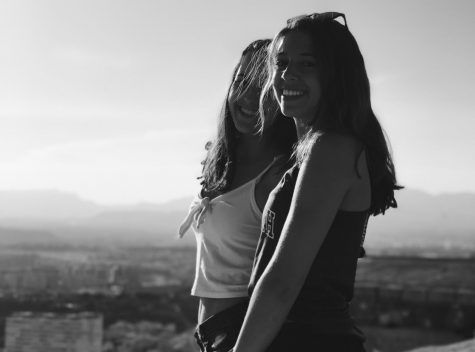Students share their unique faiths
December 19, 2017
While many are looking forward to celebrating Christmas this holiday season, ETHS students practice various religions and ideologies other than Christianity.
“People are so motivated by religion, either for good or bad,” Theology Teacher at Loyola Academy Jennifer Johnson says. “Everyone should have a chance to investigate their own spirituality, and create a connection with a greater power. ”
Unlike Loyola, ETHS doesn’t offer a course on religion. Still, ETHS is a school full of religious diversity. City Data reports the most widely practiced religion in Evanston to be Catholicism, but other faiths like Judaism, Buddhism, Baha’i and Islam are practiced as well.
“I’m Jewish, and I was raised in an orthodox home where I celebrated every holiday. As I grew older, I just started to lose interest in Judaism and gain interests in other religions and ways of life,” junior Anielle Miriam says. “Still, my family celebrates Sabbath every Saturday, and my dad goes to synagogue every single morning. My family also keeps kosher, which a lot of other Jews don’t do.”
According to Jesuit Refugee Service, those who keep kosher follow a set of Jewish dietary rules, and refrain from consuming dairy with meat, shellfish, pork and various other items. Other religions also have rules surrounding foods, like the Baha’i faith, which prevents its followers from drinking alcohol, and from eating between sunrise and sunset during the month preceding the Baha’i new year.
“This restriction is so we can have more time to pray, and so we can realize how fortunate we are for food, and to try to overcome the greed that comes with hunger,” Junior Luci Kiska says.
Kiska mainly celebrates the Baha’i holiday Ayyam-i-Ha, which celebrates the excess days in the regular calendar that aren’t included in the Baha’i calendar.
“In 2017, Ayyam-i-Ha was in February, but it varies every year. For Ayyam-i-Ha, we host parties, eat a lot of food, and give presents for each of the four or five days. There’s a lot of dancing,” Kiska says. “Since the Baha’i community is smaller than a lot of other religions, we all know each other.”
Brothers Muhammad Mustafa and Muhammad Mustafa practice Islam religiously. Praying five times a day is a part of the Islam religion, and they find ways to fit their prayers into their busy schedules.
“I always go to pray during my lunch period, in the meditation room,” Senior Mustafa says. “Some people don’t know the process here, but if you’re Muslim, you can get a pass to go pray throughout the day.”
The Mustafa’s work to familiarize other Muslim students with ways they can devoutly practice Islam, and still attend ETHS. Many laws of Islam don’t necessarily fit into a typical school day, but with help from school officials, Muslim students are able to make it work.
“Last year, Ramadan started on the day of final exams. We went in to Dr. Campbell and worked it out so that we could take the exams early, and take off exam week,” Junior Mustafa explains.
During Ramadan, the month in which the prophet Mohammed discovered the Holy Quran, followers of Islam fast from sunrise to sunset, and focus on the recitation of the Quran.
Senior Adele Kelly was raised in a Nichiren Buddhist family, with parents who chant the embodiment of the Lotus Sutra daily. The Lotus Sutra is the final teaching of the Buddha Siddhartha.
“My parents believe that the law of cause and effect governs all life and phenomena, and that birth and death are a continuous cycle that all life goes through,” Kelly says.
Kelly, Miriam, Kiska, and the Mustafa’s are all part of the small percentage that classifies them as a religious minority in Evanston. City Data places these religions, and others less widely practiced, under the “other” category, which makes up only 6% of Evanston.
While these religions and customs remain unfamiliar to most of the school, they play a big role in the overall diversity of ETHS. This December, students will not only be opening gifts on Christmas morning, or lighting Hanukkah candles for eight nights, but also celebrating the unique traditions of their individual faiths. To learn more about individual world religions and beliefs, visit http://www.bbc.co.uk/religion/religions/










